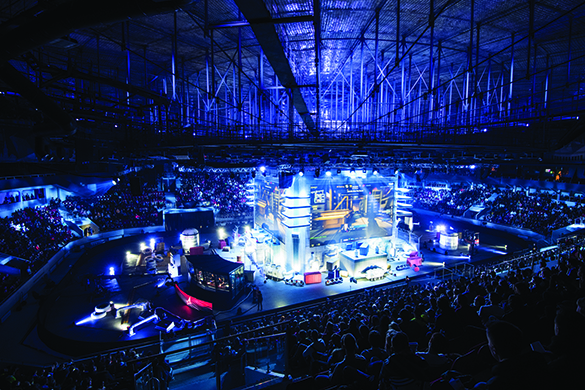Video games have come a long way from internet cafes and LAN shops, and the profitability of this popular pastime might just make Olympians out of enthusiasts
Text Wong Yi Wei
Hard-core gamers might seem out of place at a sports stadium, but that’s exactly who will be comprising part of the audience at this year’s Asian Games in Jakarta: fans of cult digital quests Arena of Valor, Starcraft II, Hearthstone, Clash Royale, League of Legends and Pro Evolution Soccer 2018.
Thanks to e-commerce giant Alibaba, competitive electronic gaming, or e-sports – once a curiosity in places like South Korea – is now making its way into the Asian Games as an official sport. Asiad’s organising body, the Olympic Council of Asia (OCA), noted the industry’s “rapid development and popularity” as a form of sports among youth, generating some USD490 million in revenue in 2016.

“E-sports is the way forward, and this is evident from how sponsors are reacting. From Coca-Cola, the oldest Olympic sponsor, to Alibaba, one of the newest major sponsors, e-sports is a big part of sponsor plans,” says Professor Andy Miah, Olympic commentator and Chair in Science Communication and Future Media at the University of Salford. “We’ve reached an exciting point in the history of e-sports.”
Related:China : Leader of the World’s Newest Tech Wave
According to the Asian Electronic Sports Federation, the six e-sports selected for September’s Jakarta Games promote integrity, ethics, and fair play – which it hopes will encourage young people to be “the best they can be through educational and entertaining interactive challenges”.
For more stories and photographs from this issue, see Asian Geographic Issue 131, 2018











